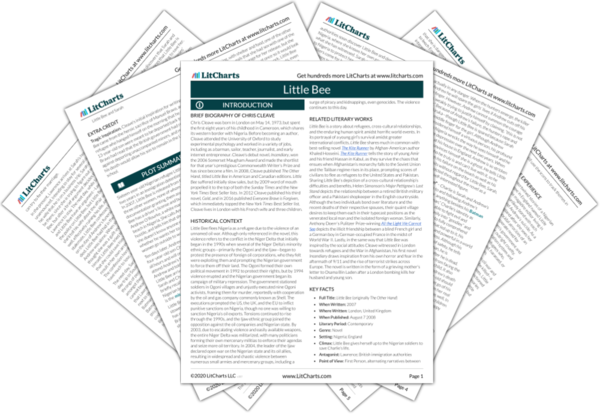Little Bee is a story about refugees, cross-cultural relationships, and the enduring human spirit amidst horrific world events. In its portrayal of a young girl’s survival amidst greater international conflicts,
Little Bee shares much in common with best-selling novel
The Kite Runner by Afghan-American author Khaled Hosseini.
The Kite Runner tells the story of young Amir and his friend Hassan in Kabul, as they survive the chaos that ensues when Afghanistan’s monarchy falls to the Soviet Union and the Taliban regime rises in its place, prompting scores of civilians to flee as refugees to the United States and Pakistan. Sharing
Little Bee’s depiction of a cross-cultural relationship’s difficulties and benefits, Helen Simonson’s
Major Pettigrew’s Last Stand depicts the relationship between a retired British military officer and a Pakistani shopkeeper in the English countryside. Although the two individuals bond over literature and the recent deaths of their respective spouses, their quaint village desires to keep them each in their typecast positions as the venerated local man and the isolated foreign woman. Similarly, Anthony Doerr’s Pulitzer Prize-winning
All the Light We Cannot See depicts the illicit friendship between a blind French girl and a German boy in German-occupied France in the midst of World War II. Lastly, in the same way that
Little Bee was inspired by the social attitudes Cleave witnessed in London towards refugees and the War in Afghanistan, his first novel
Incendiary draws inspiration from his own horror and fear in the aftermath of 9/11 and the rise of terrorist strikes across Europe. The novel is written in the form of a grieving mother’s letter to Osama Bin Laden after a London bombing kills her husband and young son.
